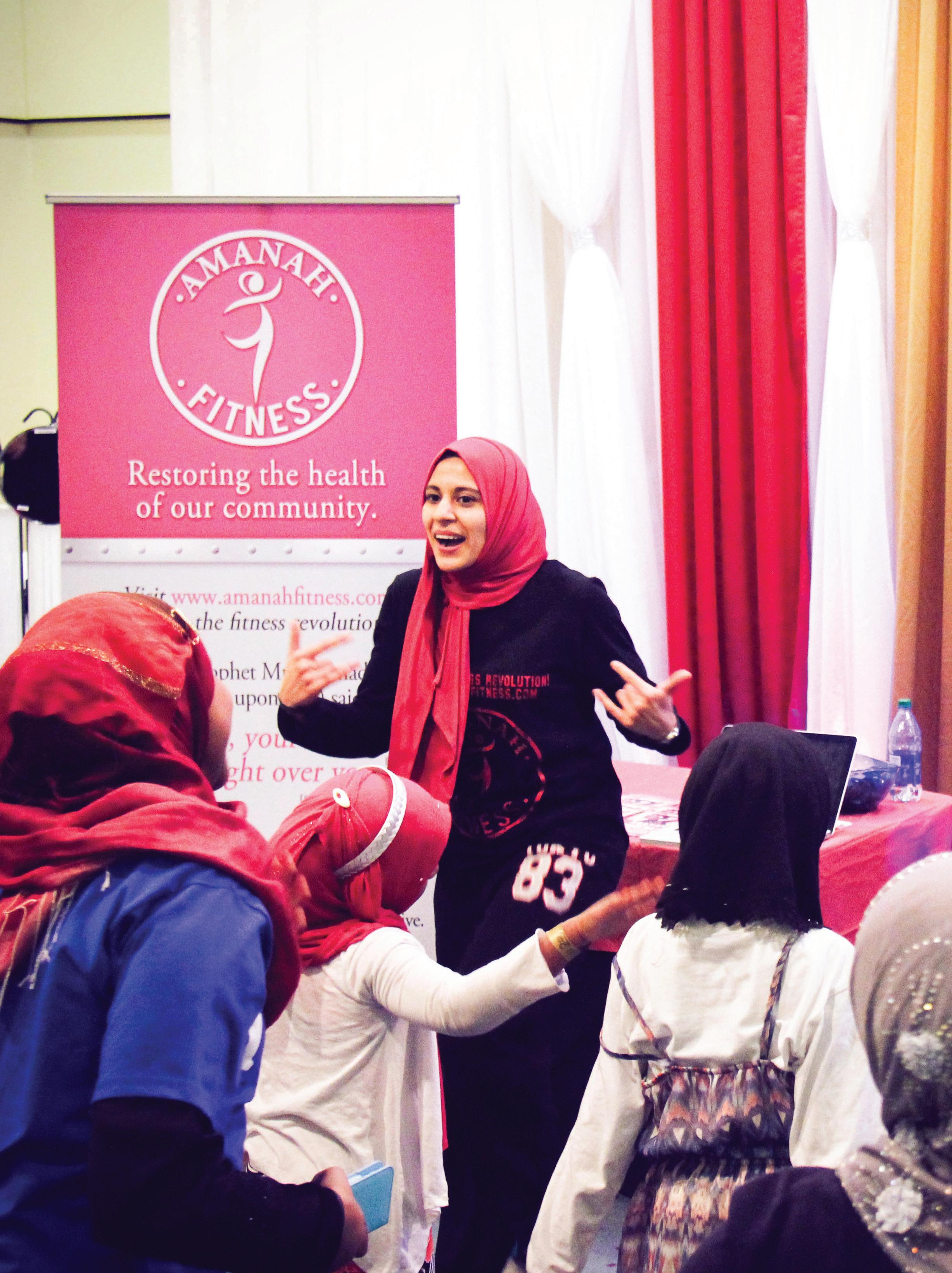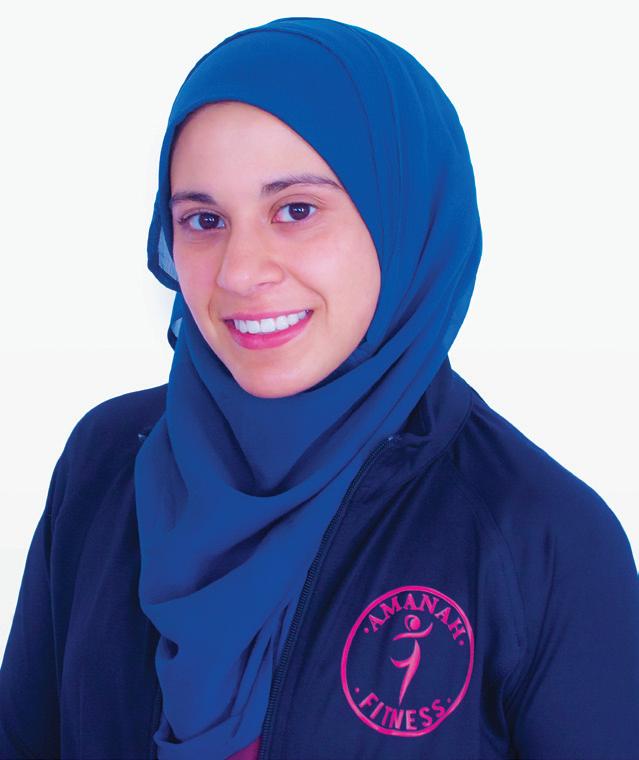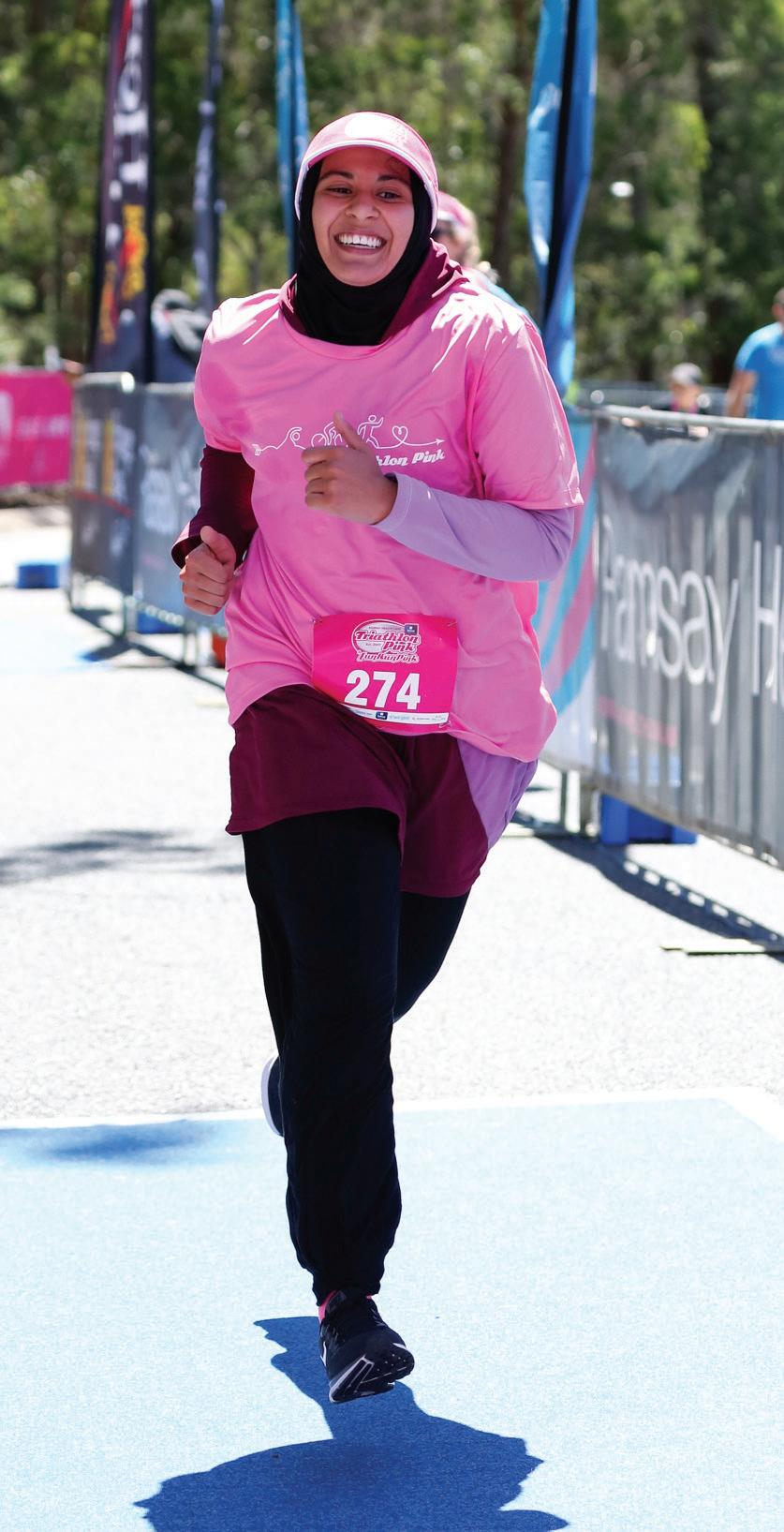
3 minute read
BIPOC IN FITNESS WITH AMINA KHAN
Inclusivity is critical to make fitness welcoming for all
BIPOC IN FITNESS IS A NEW CONTENT SERIES DESIGNED TO BRING AWARENESS TO RACIAL DISPARITIES AND TO ILLUMINATE A WORLD FULL OF POSSIBILITIES. THE GOAL IS TO REMOVE BARRIERS AND ADVOCATE FOR PEOPLE WHO BELONG TO THESE GROUPS, SHARE THEIR STORIES, EXPERIENCES, AND INSIGHTS SO THAT WE CAN ALL BE ALLIES FOR REAL CHANGE.

Name: Amina Khan
Religion: Muslim
Country of birth: Canada
Cultural background: Canadian-born Muslim woman with Indian heritage.
How would you describe how you grew up?
Growing up as a visibly Muslim woman and ethnic minority, I always felt I had to work harder to prove I belonged amongst white classmates, friends, and peers.
How would you best describe your role in fitness?
My role is to empower women of diverse cultural backgrounds to begin their own fitness journeys - after years of feeling they’ve never belonged in mainstream fitness culture. Inclusivity is critical to make fitness welcoming for all. How did you find your interest in fitness? I struggled with my weight for years growing up. I really didn’t have any relatable fitness role models I could look to for inspiration. Through my own 60-pound weight loss journey, I fell in love with fitness and wanted to show other women, who looked like me, just how fun and inviting fitness can really be - regardless of race, religion, or skin colour!
How does exercising make you feel?
Exercise is my stress relief coping strategy! Before a workout, I might feel worried or overwhelmed, but after a good sweat I always feel more in-control and prepared to take on whatever comes my way!
How have you experienced racism in fitness?
I constantly experience microaggressions in fitness spaces. During races, triathlons, and at gyms, I frequently hear sarcastic, condescending comments about my headscarf as a Muslim woman like, “You’re pretty fast... considering you have to wear all THAT!” My clothing is MY choice and it always shocks me that strangers can be so rude.
In your role, how are you helping BIPOC individuals get hired, promoted, or recognized?
In my role, we are recognizing that diversity in fitness is here to stay and needs to be celebrated! We highlight Muslim female fitness professionals from diverse backgrounds to expand the mainstream definition of what a “fit woman” looks like.
How do you actively promote fitness to your [BIPOC/Religious] community?
I run Amanah Fitness, an organization dedicated to promoting health and fitness in Muslim communities worldwide. We provide culturally sensitive health education, workouts with diverse and relatable fitness role models, and we work with other religious organizations to provide unique fitness education opportunities within their communities. Our goal is to bring fitness and faith together.
What advice would you share to fitness businesses ready to make systemic changes in their organizations?
Organizational change must start with fitness businesses proactively reaching out to diverse fitness professionals and asking them what their community needs to feel supported, included, and welcome. I believe we need a major improvement in more representation of fitness professionals from many diverse communities - so we can hear true representations of the struggles and needs of these minority groups. These struggles must be reflected in the education and opportunities provided by mainstream fitness businesses if they want to stay relevant for members of minority communities. Very few mainstream fitness organizations even acknowledge diverse cultural health struggles (e.g. Ramadan fasting). Inclusivity is not much to ask for, but it makes a big difference.
There is a lack of BIPOC leadership in the fitness industry. How do you see this changing over the next five years and what needs to happen for this imminent change?
I think the landscape of fitness leadership is going to become more inclusive and diverse. Culturally diverse communities and minority groups are finding leaders within to follow for fitness education. Many of these individuals are already stepping into leadership roles. Mainstream fitness organizations need to be part of this positive change and reach out to ask how they can support and be a part of increasing inclusivity for everyone.






